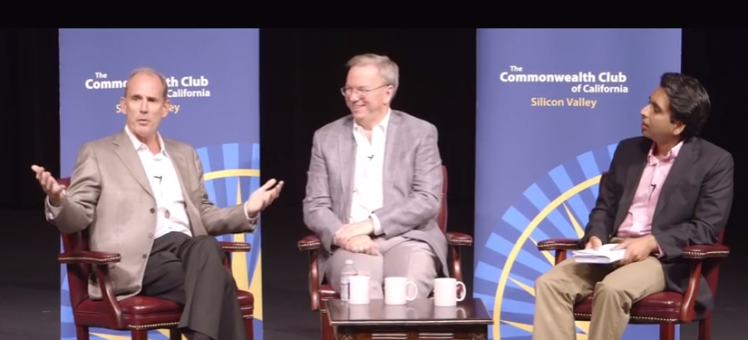Google’s hiring chief says he doesn’t give much credit to college degrees in the hiring process. So it should come as no surprise that other Google executives also regard staples of traditional business school training at the nation’s elite colleges as downright “stupid.”
Former senior vice president Jonathan Rosenberg explained how cofounder Larry Page first schooled him in the Google approach to business product: Design things for unexpected results.
Rosenberg had been hired early on in Google’s history to help transform the company from a scrappy startup to a mature multinational. He thought this meant his MBA mattered. “The way you do project management is the MBA comes in and writes the plan,” he told an audience at Silicon Valley’s Commonwealth Club in Santa Clara, California, in an interview with Khan Academy founder Salman Khan last fall (the video was released this winter).
The MBA, he was taught, was the almighty director, who set the direction for project management like Moses coming down from the mountaintop. Among his favorite tool was a common visual timeline technique, Gantt charts, commonly taught at the Harvard Business Schools of the world [PDF].
The conversation that Rosenberg recounts with Larry Page is worth quoting in full (it has been trimmed for clarity; Page is speaking to Rosenberg in the opening line):
“Well, these are very pretty, pretty pictures that you’ve made. That’s very impressive.”
And he goes to the 3rd and the 4th page and he says, “Noooooo.”
“When have you ever produced a plan like this where the engineers stuck features in that weren’t in your plan?”
“Well, never.”
“When did the engineers ever finish a project faster than what’s in your — what do you call it — a Gantt chart?”
“Well, never.”
“Then your plans are stupid. Please stop doing them.”
“What am I doing here?!”
“Go sit with the engineers.”
The point, as both Rosenberg and Eric Schmidt learned, was that Google prefers to design for the unexpected and work with engineers in an iterative fashion. If managers don’t leave room for the unplanned, they can never be pleasantly surprised.
The whole conversation between Rosenberg, Schmidt, and Khan is worth watching. It’s embedded below.


